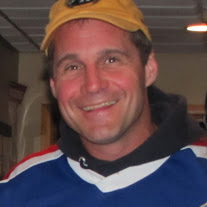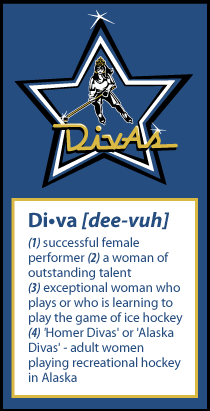Dan Coyle
The Alaska Divas and I have a special relationship with Dan Coyle, not only because his thinking is so right on about skill acquisition, but because he lives in Homer, Alaska in the summers. His family played hockey here. Many of the Divas and I have read and studied “The Talent Code” and “The Little Book of Talent” as well as other Dan Coyle best-sellers. I highly recommend both books.
Jen Coyle, his wife, was also one of the original Alaska Divas! Dan wrote an article and made a short film for the New York Times Weekend edition about his wife’s obsession with Diva hockey.
In an interview at TomPeters.com about “The Talent Code: Greatness isn’t born, it’s grown, here’s how.” Dan Coyle was asked what does that subtitle mean?
DC: We reflexively think about talent as a possession: “He has talent. She has talent. Michael Jordan has talent.” That implies that they’re born with some “x” factor that no one else in the world has. That’s the way we tell stories about talent. That’s the way Western civilization has thought and talked about talent. And here’s the news—that’s not quite right.
There’s a new way to think about talent. There’s a mechanism through which you can actually grow skill, talent, and, at the top end, genius. It’s a physical, neurochemical mechanism that we’re all born with. If you do certain things, if you follow certain methods, if you do essentially what certain talent hotbeds around the world are already doing, it’s possible to grow skills, fluency, speed, power, all the qualities that add up to what we know as talent.
It’s interesting to put our understanding of skill and talent into a historical context. I mean, 150 years ago, people held vague ideas of how disease worked—some people lived, some died, nobody really knew why. Then we discovered how the immune system worked, and the world was changed. Thirty years ago, people had vague ideas about how cardiovascular fitness worked—some people could run marathons, some couldn’t. Then we discovered how the aerobic system worked, and the world was changed—now my 70-year-old aunt can run a marathon. Today, we have vague ideas about skill and talent—some people have talent, some don’t. Now we’ve discovered how the skill-acquiring system works, and the world is changing.
From the Tom Peters Company


